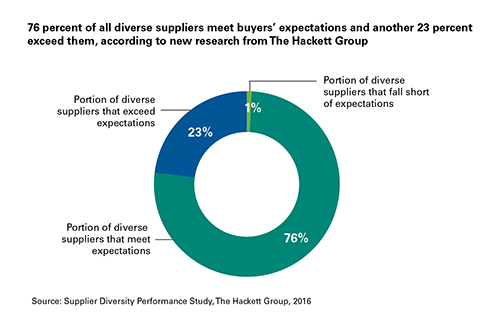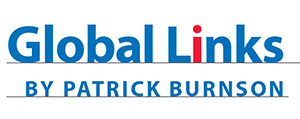Revelations in a recent survey that only half of multinational businesses carried out basic corruption checks on third parties last year prompted a stern rebuke from David Noble, group CEO of Chartered Institute of Procurement and Supply (CIPS).
He notes that new laws continue to make companies increasingly liable for third parties' acts of corruption or bribery, thereby placing added pressure on businesses to conduct the right due diligence on their partners.
Low levels of due diligence in large businesses are “disappointing, but maybe not that surprising,” says Noble.
“A licensing approach to procurement and supply will begin to ensure the right structures are in place to enable this to happen, with the attendant law of consequence that the license will be lost if malpractice is discovered,” he said.
The survey of 604 chief compliance officers and heads of legal, conducted on behalf of law firm Hogan Lovells found only half of respondents (53%) said they conducted desktop due diligence on third parties.
Nearly half (44%) did not conduct face-to-face interviews or send questionnaires to third parties, and the same percentage did not have audit clauses in all their contracts. Well over a third of respondents (42%) said they did not have a complete record of all their third party suppliers.

“Fixers” in the Market
Considering many of the companies interviewed had a potential risk of third party corruption, Crispin Rapinet, global head of investigations, white collar and fraud, at Hogan Lovells, said it was surprising so few companies did this due diligence.
“It means 45%, let's say, are going to have a problem if anything goes wrong. Which, given the risks of things going wrong in terms of size of the penalties, we find quite surprising,” he said.
International anti-corruption laws have become increasingly tough, adds Rapinet, with more countries developing and enforcing their own regulations. The main issue with third parties was knowing exactly who you're dealing with, he says.
“In the procurement and supply chain arena you would probably still have fixers in some markets.
Due diligence needed to be proportional to the risk, and the best defense companies can take against falling foul of third party corruption law is to keep proper records of what due diligence has been done and why, says Rapinet.
“If you have a problem, but you can produce a file that shows that you did a risk assessment – that you took a view that this person, or this agency, was relatively low risk for theses reasons and on the basis of that risk assessment you did the following due diligence – you would get a sympathetic hearing from the regulators,” he says.
Diversification advantage
New research from The Hackett Group, Inc. finds that virtually all diversity suppliers “meet or exceed expectations,” and top corporate performers in supplier diversity experience no loss in efficiency,
While most supplier diversity programs have a domestic focus, The Hackett Group's research found that more than 40 percent of all global companies with a U.S. supplier diversity program plan to expand globally within the next two to three years. The Hackett Group recommends that companies manage U.S. and global programs as a single initiative, where appropriate. Partnering with corporate diversity groups, which manage workforce diversity, is also highly advisable, as is working with third parties that can help companies connect with diverse suppliers.
In addition, they see improved quality and often extract other benefits, including increased market share and access to new revenue opportunities. The research challenges the attitude of many business leaders, who worry that dedicating resources to supplier diversity will divert attention from other strategic activities.
To truly unlock the full potential benefits of supplier diversity efforts, The Hackett Group recommends that companies consider expanding beyond traditional goals such as complying with regulations.
Top performers in supplier diversity recognize the value of objectives such as the ability to gain access to new markets and improve supplier partnerships. In addition, companies should look beyond basic measures such as the percentage of spend with diverse suppliers and calculate the true value of supplier diversity by using more sophisticated performance metrics such as satisfaction levels and other secondary metrics that are aligned to long- and short-term plans and objectives.
Developing Communities
“Supplier diversity is evolving from a check-the-box corporate social responsibility requirement to a strategic enabler providing access to new and innovative products and increased market share in new and developing communities,” says The Hackett Group Research Director Laura Gibbons. “Top-performing organizations are taking advantage of this opportunity, and applying the tenets of social diversity to new areas such as supplier partnering, reputation management and global expansion with exceptional results.”
“There are certainly challenges that need to be overcome,” cautions Gibbons. “It can be difficult to obtain the necessary support to invest in supplier diversity programs. Business leaders often worry that dedicating resources to this will impact procurement savings or even quality.”
But this research clearly shows that this is not true, adds Gibbons, who maintains that top performers are not seeing losses in efficiency, and quality often improves.
“Overall, the risks to focusing on supplier diversity are quite low, and the potential upside is significant,” she says. “In fact, up to 10% of sales come with supplier diversity requirements, suggesting that the lack of such a program can even result in lost revenue.”
“Trust, but verify” – a translation of a Russian proverb, which was also used by President Ronald Reagan in the context of nuclear disarmament – might be turned around in this context, say analysts. When it comes to hire a diverse (but risky supplier), “verify, but trust.”
SC
MR


Latest Supply Chain News
- Few executives believe their supply chains can respond quickly to disruptions
- Technology’s role in mending supply chain fragility after recent disruptions
- Tech investments bring revenue increases, survey finds
- Survey reveals strategies for addressing supply chain, logistics labor shortages
- Israel, Ukraine aid package to increase pressure on aerospace and defense supply chains
- More News
Latest Podcast

 Explore
Explore
Procurement & Sourcing News
- Israel, Ukraine aid package to increase pressure on aerospace and defense supply chains
- How CPG brands can deliver on supplier diversity promises
- How S&OP provides the answer to in-demand products
- There is still work to do to achieve supply chain stability
- Blooming success: The vital role of S&OE in nurturing global supply chains
- How one small part held up shipments of thousands of autos
- More Procurement & Sourcing
Latest Procurement & Sourcing Resources

Subscribe

Supply Chain Management Review delivers the best industry content.

Editors’ Picks





